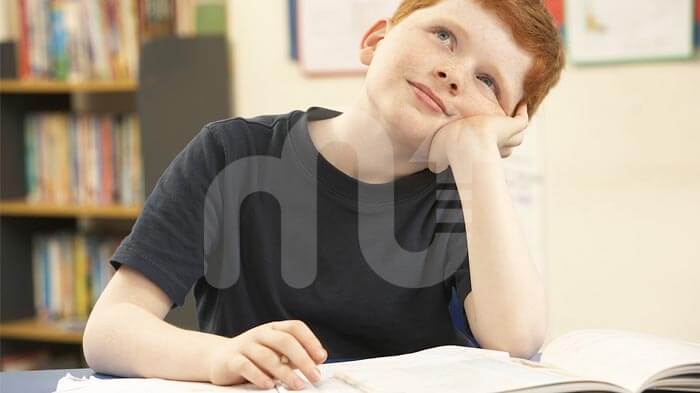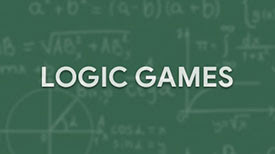10 Practical Tips to Improve Focus: Foods, Exercises, and Tools
What is Attention Span?
Attention span is the amount of time during which you can focus on a task without getting distracted. Thus, it has a major role in your performance on a specific task. On the other hand, focus is also a kind of attention, but it refers to a concentrated form of it. That means tips on how to increase focus, how to improve concentration and short attention span all aim at reaching a better performance in any task or life in general.
How to improve the attention span of a child?
The attention span is a particularly important issue in children. The simplest reason for this is that children are in a learning phase and the longer their attention span, the greater their learning potential.
We will mention some attention exercises below, but if you want to get more detailed information, you should definitely check out our ‘How to Improve Short Attention Span: Tests, Games, Exercises’ blog post.
Attention Exercises
AI homework helper tools can create a series of exercises designed to improve your child's mental performance and ability to focus. There are many factors that contribute to strong attention skills, and education is clearly one of the most important and effective ones.
NOTE: You can also use educational brain apps such as MentalUP.
MentalUP provides interactive attention-building brain exercises in the form of sound, images, and animations. It also offers suitable workouts for kids to improve both their brain and body! 🚀
10 Practical Ways to Improve Concentration and Memory
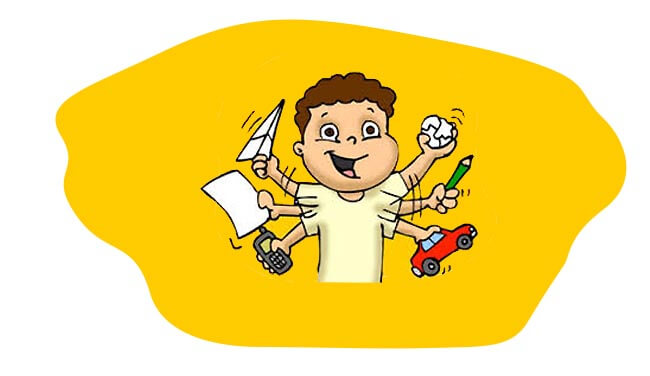
The necessity of brain exercises to develop cognitive abilities, such as attention and focus, is indisputable. However, if parents are negligent and don’t encourage their children to challenge themselves with brain and concentration exercises, then their child may never tap into their full potential.
If you want to improve your child's concentration activities and memory skills, we highly recommend using educational materials. In addition, here are 10 tips on how to build concentration that is worth their weight in gold:
List of practical ways
1. Develop an environment free of distractions
We cannot claim that a quiet environment is ideal for every child to boost concentration. Some children can only focus in very quiet environments, while others may focus better in slightly noisy environments where they do not feel alone. This one is highly recommended if you are also looking for a way on how to improve focus at work.

- Ambiance: If you are looking for ways to help your child focus and pay attention, soft or instrumental music can sometimes work wonders. A touch from Beethoven would be great to develop concentration if a completely quiet environment makes your child feel like they’re in a deserted cave.
- Distractions: The sound of the television coming from the living room or just the noise coming from the street can easily distract people. If you want to overcome children's concentration problems or just boost concentration, make sure these distractions are away from your child’s working environment.
- Accessible materials: To help concentration make sure that your child has all the necessary materials at their workstation such as their books, notebooks, and other supplies before they start doing their homework. This will prevent distractions later on.
TIP: If you need more detailed information about learning styles, please visit the following page to learn the most effective forms and tips for learning.
2. Make sure you eat healthy food
You are what you eat — and so is your child. Healthy nutrition is directly linked to the power of attention and concentration activities, as well as the mind.
To ease children concentration problems try to avoid feeding them sugar-rich foods and have them consume foods that increase concentration while studying instead. Make sure that your child eats plenty of meat and eggs, which are rich in protein.

- Caffeine: According to research data, children consume large amounts of caffeine in the form of energy drinks and carbonated drinks. This is unhealthy for them in the long-term and should be limited if you are looking for ways on how to overcome children's concentration problems.
- Green Foods: Green foods consumed during breakfast will help to develop concentration. Experts recommend that children consume plenty of greens and fruit.
3. Create and follow a routine
Routines are not boring if you turn your child's routine into a fun one. Plus it’s a great way for parents that are seeking methods on how to increase mental focus.
A routine can offer your child many advantages in the upcoming years, as well as help to increase their concentration skills. For example, a child who is accustomed to their routine knows when game time is over and it’s time to study. This routine allows the brain to practice self-discipline.
A child who is aware of the necessity of studying after playing a game can quickly concentrate and resume their routine.
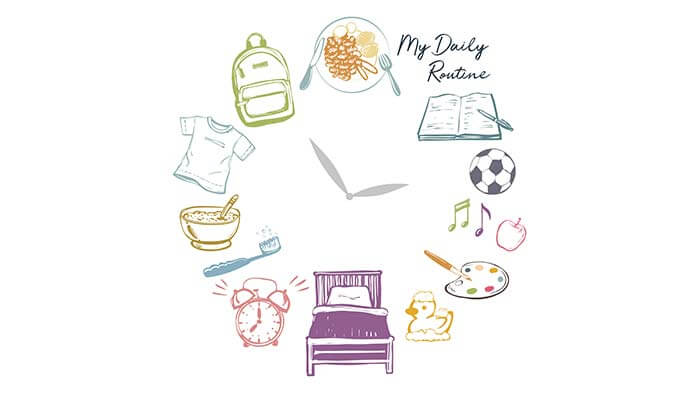
4. Sleep and breaks increase concentration
Many children are only ready to pay attention after a good night's sleep. It is not easy for a child who wakes up early in the morning to maintain concentration over a long day.
A 20-minute nap after school can provide additional mental and physical strength. Another important method to improve concentration and memory would be introducing short breaks, as they are also necessary for children to regain their attention. However, it may be inconvenient to schedule toilet breaks and snack breaks while they’re actively studying and learning.
When the human brain thinks that a task is boring, it tries to postpone it. Usually, valid excuses are needed to avoid feeling guilty (like feeling the need to go to the toilet).

5. Try brain games and attention games
Since children learn better by playing, it's okay to sprinkle some fun into their education by adding entertaining mind focusing exercises. Lessons and ordinary exercises may fail to attract your child's attention. Yet every child is interested in playing games and it would be a great way to use brain focus exercises.
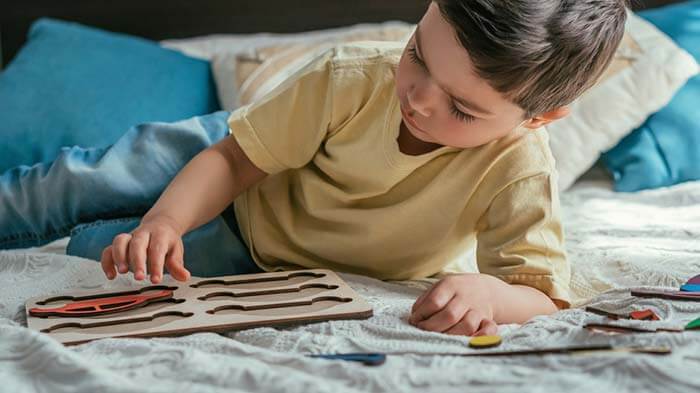
NOTE: With intelligence and attention games, you can turn the opportunity of developing your children's mental skills into great fun! Don't forget to take a look at MentalUP's brain games that improve attention and intelligence skills with just 20 minutes of fun exercises per day.
6. Divide large assignments into small tasks
Big assignments are intimidating. Waiting for your child to finish an entire assignment at once is a difficult task. If their goal is to finish the assignment, then you can help them divide this work into pages or even paragraphs.
When big tasks are broken down into smaller tasks, it is easier to make continuous progress, which is very motivating for children and perfect for those with short attention spans.
"Nothing is particularly hard if you divide it into small jobs.” - Henry Ford

7. Discover how your child learns!
Every child learns differently. Some can easily process information by simply hearing it, while others need to touch or experience it. One of the reasons for your child's lack of attention might come down to their learning style — so why don’t you try one of the below-learning methods on your child instead? Some golden tips on ways to increase your concentration when studying include:
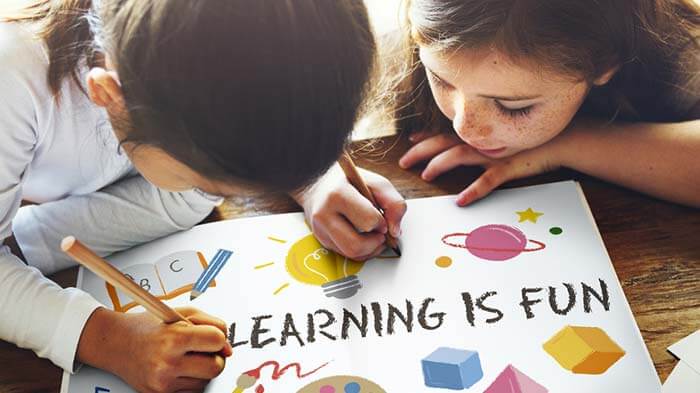
- Visual: Some children focus more easily on visuals. These children can experience what they can see better than information that is spoken or written.
- Card Exercises: If your child is reading and writing, you can teach them how to spell with the help of card exercises, and increase their concentration level and interest through frequent repetition.
- Drawing: Ask your child to draw what they have learned after learning a new concept. Visualizing the details of their newfound knowledge can help them to improve their motor skills.
- Reading aloud: Children who like music respond better to sounds. Reading words aloud or listening to someone else can be the magic key for some children to be able to focus easily.
- Psychosensory: Psychosensory children must touch and feel something in order to experience it. When a child learns about the solar system, touching a solar system model can make this learning permanent.
8. Set short-term goals for better concentration
Sometimes concentration can be achieved when your child knows a task must be completed within a certain period of time. For example, you can set a time limit of 20 minutes for your child to read a specific number of pages. Thus, it can be an effective way of how to get children to focus.
People with time constraints tend to focus more deeply. Of course, you need to develop a successful reward system.

9. Build a reward system
Knowing there will be a reward can help your child focus on completing a single task quickly. The rewards themselves can be educational too — for example, give some maths puzzles for a child who enjoys doing maths, so it turns into a win-win concentration tip!
Good rewards will help parents who seek tips for their children on how to focus for long periods of time, since that way they can be sure that their child will stay focused on the main task much longer.
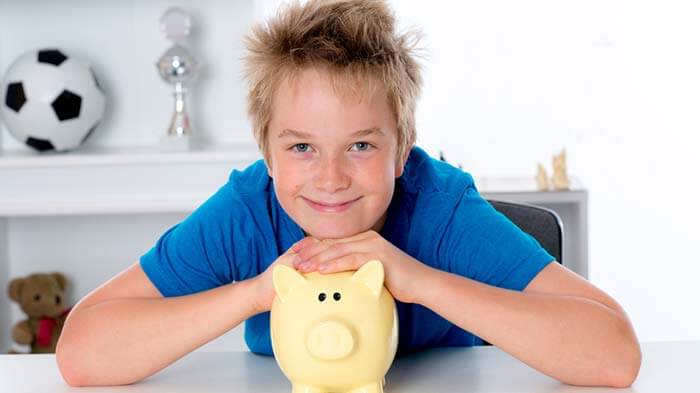
10. Allow time for distractions
Children are energetic by nature and they can get easily distracted. They should be given the opportunity to explore these distractions, so they’re ready to focus again when the appropriate time comes. No one, including adults, can focus on a single activity for long periods of time without distractions.
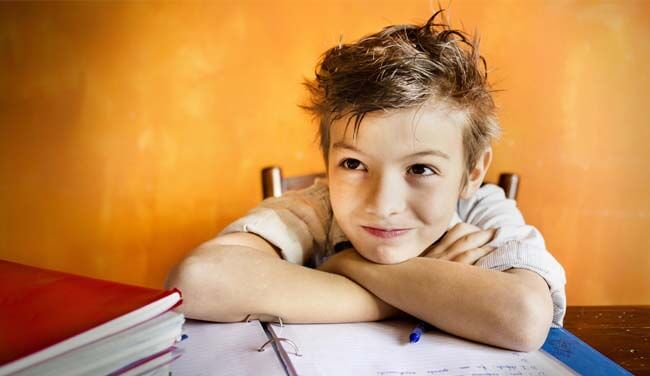
Exercises and Tools to Improve Concentration and Focus
Your child can develop stronger concentration skills by regularly doing concentration exercises and activities such as solving IQ tests or brain teaser puzzles. But should they be presented in a traditional printed format or an interactive digital environment?
To answer this question, you have to accept that digital tools used for education are much easier to reach, much cheaper, and online processes are much easier to track, so you can follow the improvement of your child’s concentration activities.
You might think that the only reason these concentration exercises, games, tests, and brain teasers are online is because of the devices we use in the digital era. However, past research by prominent industry figures, such as Norman Mackworth, a famous British psychologist and cognitive scientist known for his pioneering work in the study of attention, proved that this is not the only reason.

The result of Mackworth's scientific experiment (known as the Mackworth Clock) clearly shows that in processes requiring high attention, if there are multiple and active variables on the screen, it is easier for one to detect details.
Digital technologies are responsive to live situations. This is why parents often prefer digital methods of learning over traditional, paper-based learning. The usefulness of books is indisputable, but in situations that require continuous practice, it’s best to go digital.
For example, the answer we choose in the book cannot respond to us, but it is possible to practice more efficiently while interacting with the screen. The pioneers of cognitive science, such as Mackworth, have proved this in different ways.
For children to focus carefully on any activity, it must be fun. In today's world where tablets and smart devices — in short, technology — are dominant, books do not always coincide with children's understanding of fun.
Do Exercises That Increase Concentration Really Work?
According to experts, children aged 4 to 5 years can focus on an activity for 2 to 5 minutes. In older children, attention and focusing time is in the range of 4 to 20 minutes.
Of course, it should be noted that attention spans are directly related to how interesting the child finds the activity. Even an adult who doesn’t find the meditation interesting has a low concentration range.
Most materials that provide attention strengthening support have been developed by professionals. However, these attention strengthening materials cannot be expected to cure attention deficit disorder, and should only be considered as supportive tools.
You can use these supportive materials to develop your different focus skills such as sustained, divided, alternating, and selective attention. If you are curious about it, you can have more information about supportive exercises here and improve yourself while having fun.
Benefits of Exercises
Both physical and mental exercise have an effect that boosts concentration. Doing concentration exercises positively affects keeping the mind fresh and mentally activating the individual. When attention exercises are performed regularly, it is observed that brain muscles develop like other muscles of the body. Mind-focusing exercises contribute to school success by increasing learning skills in children. You can also use suitable outdoor activities for kids to improve their focus.
- Developing skills, such as understanding, perception and comprehension
- Developing cognitive abilities with visual, verbal and numerical exercises
- Increased attention and focus times
- To comprehend the relations between parts and the whole; to develop inference and interpretation skills from these relationships
- Increased visual and auditory attention
- To gain the habit of problem-solving and solution-oriented approach to problems
You can support your child's concentration with MentalUP. Besides 150+ concentration games, MentalUP offers 240+ fitness exercises for kids! 🧠💪
It's time to keep the brain and body muscles active with fun and beneficial activities!
Educational Materials
There are many traditional educational materials that will help your child boost concentration skills. Some are sold as individual books, while others come in a set (books plus supporting products). These materials are available for children from 3 to 12 years of age, and will gradually increase in difficulty as the child grows older.
The content of the MentalUP Attention Strengthening App is suitable for all children from 4 years and up. Through its machine learning and artificial intelligence technologies, MentalUP will automatically determine your child's attention level and offer the most appropriate gamified mental exercises.
- Building activities as building models of skyscrapers using foam pieces, glue, paint, and markers.
- Brain exercises for memory and memory games especially games that use 3-D shapes.
- Puzzle games like rubic cube
- Cooking activities as decorating sugar cookies
Tips on Choosing Tools
Want to buy a tool that will help your child improve their concentration and mental performance, but you’re not sure which one? Then, you should consider these concentration tips:
- Make sure that the product you choose is appropriate for your child's age and learning level. Even if you buy a product that is appropriate for your child's age, the difficulty level may not be appropriate for your child. Therefore, rather than age, prefer products with more specific features if you want to boost concentration.
- Ensure that the product is prepared by an expert and is based on scientific principles to provide the best short attention span cure.
- If possible, choose materials for concentration exercises that have been reviewed by pedagogues and have a pedagogical product certification.
- If you want to help concentration, consider your child's interest in educational sets and books — but remember that these are not magic wands. If your child doesn't find these materials entertaining and immersive enough, it won’t work.
- Review the content of the product package you want to purchase in detail before making your final decision about the attention exercises. Review the description and find out if there are any materials included in the package and whether you’ll need to purchase additional materials later.


